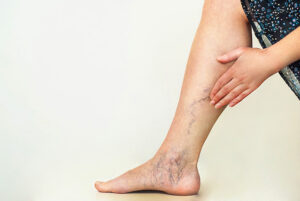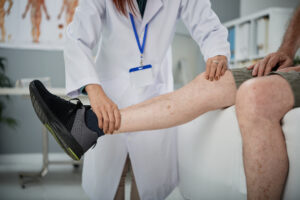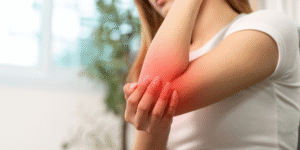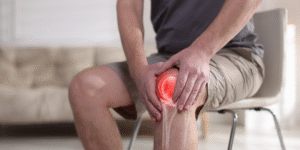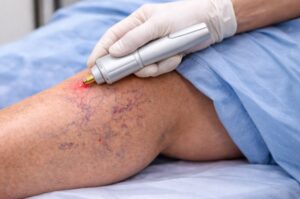Pregnancy is a beautiful journey, but it also brings with it some not-so-glamorous side effects, like tired legs, swelling, and sometimes unexpected vein issues. Many women don’t think about pregnancy vein health until symptoms show up. But understanding what’s happening inside your body can make a huge difference in how you manage it. Let’s explore why pregnancy vein health matters, the most common vein issues during this time, and how to manage them safely and effectively.

Why Pregnancy Increases Vein Pressure
When you’re pregnant, your body changes dramatically, especially in your circulatory system. As your baby grows, blood volume increases to support you and your baby. But this added pressure and volume can stress your veins.
Here’s what causes vein changes in pregnancy:
Hormonal Shifts: Vein valves are weakened by high progesterone levels because they relax the blood vessel walls.
● Increased Blood Volume: More blood means more pressure, especially in the lower body.
● Uterine Pressure: The growing uterus presses on the pelvic veins, making it harder for blood to flow back up to the heart.
This combination can lead to poor pregnancy and circulation, resulting in everyday issues like swelling, heaviness in the legs, and, yes, varicose veins during pregnancy.
Common Vein Conditions in Pregnancy
Varicose veins are the most prevalent condition impacting the health of pregnant veins. These are twisted, enlarged veins that typically show up in the vulva, ankles, or legs, right beneath the skin. Some women also develop haemorrhoids, essentially varicose veins in the rectal area.
Spider veins, which are tiny red or blue lines beneath the skin, may also be visible. While less dramatic than varicose veins, they still reflect vein changes in pregnancy.
Symptoms of varicose veins during pregnancy include:
● A heavy or achy feeling in your legs
● Throbbing or itching near the veins
● Swelling in the feet or ankles
● Visible rope-like bulges under the skin
● Haemorrhoids that itch, hurt, or bleed
These symptoms usually get worse if you’re on your feet for long periods or sitting still without moving. Many women later seek guidance from a vein doctor or even consider professional vein treatment in Bethlehem for longer-term relief.
Safe Prevention Methods
The good news is that most pregnancy vein health issues are preventable, or at least manageable. Reducing vein pressure and increasing circulation are the objectives. Here are some tried-and-true methods:
● Stay Active: Gentle walks, stretching, and pregnancy-safe exercises can boost pregnancy and circulation.
● Avoid Long Periods of Sitting or Standing: Change your position often to keep blood moving.
● Elevate Your Legs: Rest with your feet above your heart whenever possible.
● Sleep on Your Left Side: This eases pressure on your most prominent vein, the inferior vena cava.
● Wear Compression Stockings: These can prevent blood from pooling in your legs and improve overall pregnancy vein health.
● Eat Well: A high-fibre, low-sodium diet helps reduce swelling and prevents constipation, which can lead to haemorrhoids.
● Hydrate: Adequate hydration promotes healthy bowel motions and veins.
Avoid crossing your legs while sitting, as it restricts blood flow. Small leg exercises, like heel raises or ankle rolls, can support a better pregnancy and circulation.
Postpartum Vein Care
For most women, varicose veins during pregnancy improve after delivery. Your veins experience less pressure as your uterus contracts and hormone levels stabilize.
Still, if you’re dealing with painful or visible veins months after childbirth, it’s time to talk to your doctor or schedule a consultation with a vein specialist in Stroudsburg. There are non-surgical treatments available, such as:
● Sclerotherapy: The injured vein is sealed off by injecting a solution.
● Laser Treatments: Light therapy can shrink or destroy smaller veins.
● Surgery: If the situation is more serious, your doctor might suggest vein stripping or other treatments.
Haemorrhoids often resolve naturally, but warm sitz baths, fibre-rich diets, and topical creams can help with the discomfort during the healing period.

When to Seek Treatment
Pregnancy vein health isn’t always just a cosmetic issue. Sometimes, it’s linked to more serious conditions like deep vein thrombosis (DVT), a blood clot in a deep vein that can lead to complications like pulmonary embolism.
Call your doctor if you notice:
● A swollen leg that feels warm or tender
● Sudden leg pain that doesn’t go away
● Skin colour changes around your veins
● Bleeding haemorrhoids that persist
Even though varicose veins during pregnancy are common, any severe or unusual symptoms deserve professional attention.
Final Thoughts
Taking care of your pregnancy vein health isn’t just about looking good; it’s about feeling good and staying safe throughout your pregnancy journey. Whether experiencing mild swelling or painful vein changes in pregnancy, the key is to remain proactive.
Use these tips to manage your symptoms, talk to your healthcare provider about any concerns, and don’t hesitate to consult a vein doctor for expert advice. From vein treatment in Bethlehem to trusted care from a vein specialist in Stroudsburg, there are safe and effective solutions to support your vein health.
Remember, pregnancy and circulation go hand in hand. With the right habits, you can support your body in one of its most amazing jobs: growing a new life.


